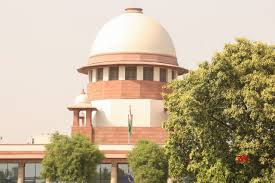SC initiates suo motu case on probe agencies summoning lawyers of parties

The Supreme Court of India has launched a suo motu case after receiving complaints about central agencies summoning lawyers who represent political parties. This move comes amid rising concerns over the protection of legal rights and the independence of the legal profession.
Chief Justice D.Y. Chandrachud, who leads the bench, asked agencies like the Enforcement Directorate (ED) and Central Bureau of Investigation (CBI) to respond. The court’s step reflects its intent to safeguard legal ethics and uphold attorney-client confidentiality.
Legal Community Raises Alarm
Senior advocates and bar councils had flagged a troubling trend. Lawyers representing opposition leaders were reportedly being summoned by investigative agencies. Many saw this as a tactic to intimidate legal professionals and disrupt fair trials.
Several legal bodies responded swiftly. The Bar Council of India (BCI) condemned the practice and warned that it posed a threat to legal independence. BCI Chairperson Manan Kumar Mishra stated, “Calling lawyers just because they defend political clients is an overreach of power.”
Confidentiality Between Client and Lawyer at Risk
Legal experts have highlighted the critical importance of attorney-client privilege. This principle ensures that conversations and documents shared between a client and their lawyer remain private.
Lawyers say that when agencies summon them without clear cause, they risk compromising case strategy. More importantly, it discourages lawyers from taking up high-profile or politically sensitive cases.
Former Attorney General Mukul Rohatgi noted, “A lawyer must never fear consequences for defending someone. That’s the core of our justice system.”
Supreme Court Calls for Legal Safeguards
During the initial hearing, the Supreme Court stressed the need to protect lawyers from harassment. Chief Justice Chandrachud said that lawyers should feel safe while representing clients, regardless of political affiliations.
The bench has directed ED, CBI, and other agencies to explain their actions. The court plans to hear the matter again in the coming weeks.
Political Leaders React Strongly
Opposition parties welcomed the court’s decision. They believe the intervention will stop what they call “targeted harassment.” Congress leader and senior advocate Abhishek Manu Singhvi said, “The Supreme Court has sent a strong message in support of legal freedom.”
The Aam Aadmi Party and Trinamool Congress also praised the move. They accused the ruling government of misusing central agencies to intimidate both politicians and their lawyers.
In contrast, the Bharatiya Janata Party (BJP) defended the agencies. A senior BJP spokesperson remarked, “Agencies operate under legal guidelines. Summons are issued only when necessary.”
Experts Want Clear Legal Boundaries
Many legal scholars have called for formal rules to prevent misuse of summons against advocates. Retired Supreme Court judge Deepak Gupta said that agencies should not target lawyers unless there’s solid evidence of wrongdoing.
He added, “Lawyers are not suspects. They are professionals doing their job. Summoning them without cause damages trust in the justice system.”
Several bar associations plan to join the case or submit written arguments to highlight the impact of such practices on legal independence.
Court’s Action Could Set a Legal Benchmark
This case could define how far probe agencies can go while investigating politically charged matters. If the Supreme Court imposes clear restrictions, it will reinforce legal autonomy and the role of defense counsel in a democracy.
Legal professionals say the court’s action offers hope for restoring public trust. It also affirms that the legal profession cannot be undermined by fear or intimidation.
Justice Chandrachud’s leadership in this case could create guidelines that protect both justice and legal ethics.
What’s Next?
The Supreme Court has asked the agencies to file their replies soon. Lawyers expect the court to consider interim directions if more summons are issued in the meantime.
The next hearing could decide whether India needs binding safeguards to protect lawyers in politically sensitive cases. The outcome may influence not only legal practice but also public trust in how justice is served.






